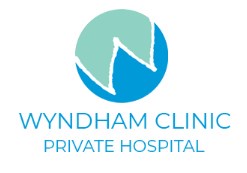Embarking on the journey of drug rehabilitation is a courageous step towards reclaiming one's life from the clutches of addiction. In this blog, we'll explore the transformative process of rehabilitation, shedding light on the essential components that pave the way for individuals to break free from the chains of substance dependence and discover a path to renewal.
Understanding Drug Rehabilitation: Drug rehabilitation, commonly known as rehab, is a comprehensive and structured process designed to help individuals overcome addiction and achieve lasting recovery. It involves a combination of medical, psychological, and social interventions tailored to address the unique needs of each person. The primary goal is not only to achieve sobriety but also to foster a holistic renewal of physical, mental, and emotional well-being.
Medical Detoxification: The journey of drug rehabilitation often begins with medical detoxification. This crucial phase is supervised by medical professionals to manage withdrawal symptoms safely and comfortably. Medical detox helps individuals cleanse their bodies of the substance while receiving medical support to ensure physical stability.
Therapeutic Interventions: Therapeutic interventions are the cornerstone of drug rehabilitation programs. These can include individual counseling, group therapy, and family therapy. Individual counseling sessions provide a confidential space for individuals to explore the underlying causes of their addiction, while group therapy fosters a sense of community and shared understanding. Family therapy involves loved ones in the healing process, addressing the impact of addiction on relationships.
Cognitive-Behavioral Therapy (CBT): Cognitive-Behavioral Therapy is a widely used therapeutic approach in drug rehabilitation. It focuses on identifying and changing unhealthy thought patterns and behaviors associated with addiction. By promoting self-awareness and developing coping strategies, CBT equips individuals with the tools needed to navigate life without relying on substances.
Holistic Wellness Programs: Rehabilitation extends beyond the resolution of addiction itself. Holistic wellness programs are an integral part of the recovery process, addressing physical, mental, and emotional aspects of well-being. These programs may include fitness routines, nutrition education, mindfulness practices, and alternative therapies such as art or music therapy. The goal is to support overall health and provide individuals with a holistic foundation for a drug-free life.
Relapse Prevention: Understanding and addressing triggers and potential relapse scenarios is crucial for sustained recovery. Rehabilitation programs often incorporate relapse prevention strategies to empower individuals with the skills to identify and cope with situations that may pose a risk to their sobriety. Building a robust relapse prevention plan is an ongoing process that involves education, self-reflection, and the development of healthy coping mechanisms.
Aftercare and Support Groups: The journey of rehabilitation doesn't end when the structured program concludes. Aftercare plays a vital role in supporting individuals as they transition back into their daily lives. Aftercare plans may include ongoing therapy, participation in support groups like Narcotics Anonymous or SMART Recovery, and access to community resources that reinforce the commitment to sobriety.
Community and Peer Support: Community and peer support are invaluable resources in the rehabilitation process. Connecting with others who have shared similar experiences fosters a sense of understanding and encouragement. Peer support groups provide a platform for individuals to share their challenges, successes, and insights, creating a network of solidarity that is instrumental in maintaining long-term recovery.
Conclusion: Drug rehabilitation is a profound journey that requires dedication, support, and a commitment to change. By embracing a holistic approach that addresses the physical, psychological, and social aspects of addiction, individuals can find hope and healing. The path to renewal is unique for each person, but with the right support, drug rehabilitation becomes a transformative process that opens the door to a brighter, drug-free future.


No comments yet